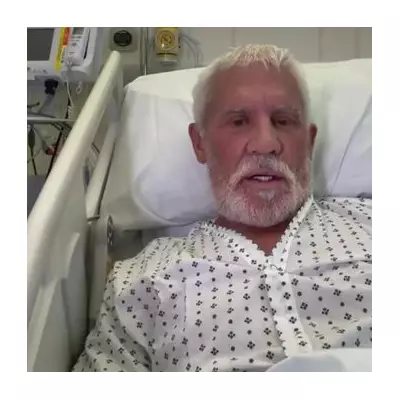
In a startling revelation that could change how Britons approach their daily routines, a prominent neurosurgeon has identified the most dangerous everyday activities causing catastrophic brain injuries across the UK.
The Hidden Dangers in Your Daily Routine
Dr. Patrick Donnelly, a leading consultant neurosurgeon, has witnessed firsthand the devastating consequences of seemingly harmless activities. From gardening mishaps to household chores gone wrong, he reveals the five most perilous habits putting millions at risk.
1. The Deadly Ladder: A Silent Killer in British Homes
"Falling from ladders while cleaning gutters or changing light bulbs remains one of the most common causes of severe traumatic brain injuries I see," Dr. Donnelly explains. "Many patients never fully recover from these preventable accidents."
2. The Sports Field Crisis: Heading Footballs and Rugby Tackles
Contact sports, particularly football and rugby, contribute significantly to brain trauma among British youth and adults. The neurosurgeon emphasises that repeated heading of footballs causes cumulative damage often dismissed as "just getting your bell rung."
3. Cycling Without Protection: A Recipe for Disaster
Despite cycling's popularity across UK cities, countless riders forego helmets, risking life-altering injuries from seemingly minor falls. "The pavement doesn't forgive," Dr. Donnelly states grimly.
4. The Household Hazard You Overlook Daily
Slippery bathroom surfaces and poorly lit staircases cause more brain injuries than most realise. The neurosurgeon urges immediate home safety assessments, particularly for elderly residents.
5. The Automotive Oversight With Fatal Consequences
Dr. Donnelly identifies improper seatbelt use and distracted driving as major contributors to traumatic brain injuries that could be prevented with basic vigilance.
Recognising the Silent Symptoms
Many brain injury survivors display subtle symptoms that loved ones often miss. Dr. Donnelly highlights key warning signs:
- Persistent headaches that worsen over time
- Memory lapses and confusion with routine tasks
- Personality changes and increased irritability
- Balance problems and dizziness
- Visual disturbances and sensitivity to light
A Prevention Blueprint for British Families
Dr. Donnelly's essential safety protocol could save countless families from tragedy:
- Always use proper safety equipment – helmets for cycling, harnesses for ladder work
- Implement home safety modifications – non-slip mats, improved lighting, handrails
- Educate young athletes about proper technique and concussion protocols
- Never dismiss head trauma – seek immediate medical attention after any impact
- Advocate for safer sports regulations in schools and community clubs
With traumatic brain injuries affecting approximately 1.4 million Britons annually, this expert advice comes not a moment too soon for UK families. The time for prevention is now – before another life is irrevocably changed by a preventable accident.





